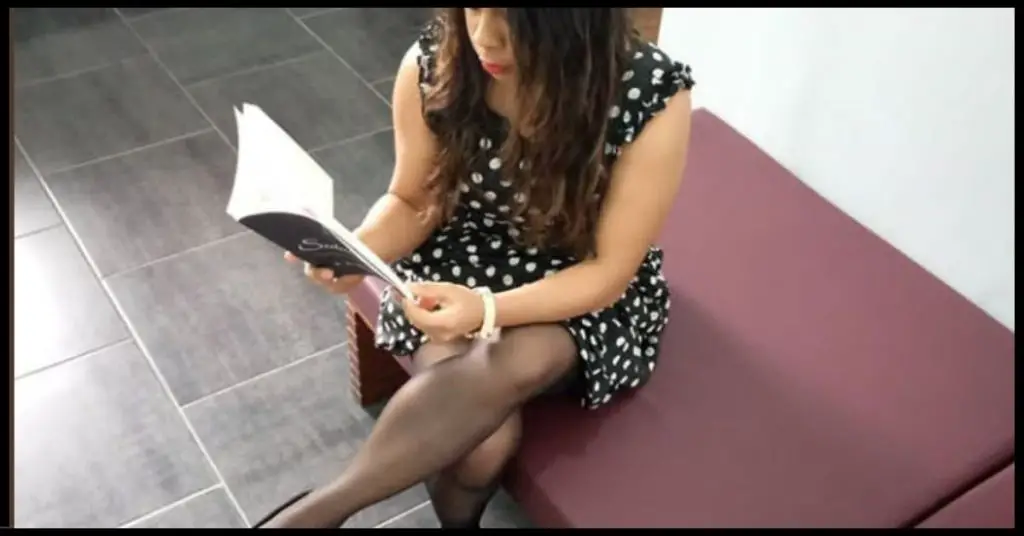How to Do a Close Reading of Poetry

When reading poetry, we are engaging in a close reading of the text. We are looking at the words on the page and thinking carefully about what they mean and how they contribute to the overall meaning of the poem.
Reading allows us to develop a deep understanding of the poem and gain valuable insights into the author’s message or meaning.
It’s not hard to do close readings, but there are some specific techniques you can use when you want to fully understand the poem in front of you.
Table of Contents
Affiliate Disclaimer: This content contains affiliate links. When you buy through these links, I may earn an affiliate commission.
1. Read the poem aloud
When it comes to understanding a poem, reading it aloud can be helpful. This is because hearing the poem can give you a better sense of its rhythm and meter.
Additionally, reading a poem aloud can help you to slow down and pay attention to the words. This can be especially useful when you’re struggling to understand a particularly dense or difficult poem.
Of course, you don’t always have to read a poem aloud in order to understand it. But if you’re having trouble understanding a poem, reading it aloud may be worth a try.
Pros and Cons of Reading the Poem Aloud:
PROS:
- Allows the reader to connect with the poem on a personal level
- Gives the poem life
- Can help with understanding and interpreting the poem
- Can be relaxing and therapeutic
- Might make the poem more memorable
CONS:
- Might not be able to properly convey the emotion intended by the author
- The reader might not have proper diction or intonation
- Could disrupt the flow of the poem if read too slowly or too quickly
- Some words might be mispronounced
- May come across as being fake or insincere
2. Read the poem more than once
If you want to read and understand poetry better, there are a few things that you can do in order to help with comprehension and appreciation.
- One of the best things that you can do is to read the poem more than once. This will help you to catch things that you may have missed the first time around.
- Another thing that you can do is to take your time when reading the poem. Don’t try to rush through it – savor each word and each line.
- And finally, don’t be afraid to ask for help if you’re having trouble understanding a poem. There are plenty of resources out there that can help you get a better understanding of what you’re reading.
Pros and Cons of Reading the poem more than once:
PROS:
- You can find new meaning each time you read it.
- You can get a better understanding of the poet’s intent.
- You can analyze the poem more deeply.
- You can appreciate the poem more fully.
- You can find new favorite lines or stanzas.
CONS:
- It can be time-consuming.
- You may not understand the poem any better after multiple readings.
- You may get bored of reading the same thing over and over again.
- Your initial reaction to the poem may change after repeated readings.
- You may find new things to dislike about the poem after multiple readings.
3. Look up unfamiliar words
Another tip to help you with reading poetry is to look up unfamiliar words in order to gain a better understanding of the poem as a whole.
This is because the meaning of a word can often be integral to the poem’s overall message or theme.
Additionally, looking up words can also help with understanding the poet’s use of language and imagery.
Of course, looking up every single word in a poem can be time-consuming and disrupt the flow of reading.
So, it may be helpful to first try to guess the meaning of a word based on its context within the poem.
If after doing this you’re still unsure of the word’s meaning, then looking it up may be worthwhile.
Pros and Cons of Looking up unfamiliar words:
PROS:
- Allows for a greater understanding of the poem as a whole
- Can provide context for difficult words or phrases
- May uncover new and interesting vocabulary
- Can deepen one’s appreciation for the poem
- Can lead to a better understanding of the poet’s intent
CONS:
- Takes time to look up words, which can disrupt the flow of reading
- Some words may be impossible to define precisely
- May require multiple trips to the dictionary for a single poem
- Some words may have multiple meanings, making it difficult to choose the right definition
- May give too much focus to individual words, rather than the overall meaning of the poem
4. Identify the poet’s purpose
Poets often write poems with the purpose of evoking emotions in the reader. They use various literary devices such as diction, figurative language, and punctuation to create images and feelings that will resonate in the reader.
When reading poetry, it is important for readers to pay close attention to how these elements are used and how they contribute to the meaning of the poem.
A good way to get started is by identifying the poet’s purpose – what did they want you to feel?
How do their choices of words help them achieve this goal? How does the rhythm of their lines contribute to your understanding of their message?
The Pros and Cons of Identifying the poet’s purpose:
PROS:
- The poet’s purpose can be easily identified.
- It is a concise way of writing.
- The tone is professional.
- It is a good way to improve your writing skills.
- It can help you to better understand the poem.
CONS:
- The poet’s purpose may be difficult to identify.
- It may be hard to keep the tone professional.
- You may not have time to improve your writing skills.
- You may not understand the poem as well as you could if you wrote it yourself.
- It may be difficult to find a good poem to write about.
5. Analyze the poet’s choice of words
When reading poetry, it is important to analyze the poet’s choice of words. By doing so, you can better understand the meaning of the poem.
The poet’s choice of words can tell you a lot about their culture, background, and beliefs. For example, if a poet uses a lot of religious imagery in their poetry, you can infer that they are likely very religious.
By analyzing the poet’s choice of words, you can get a deeper understanding of their work. So next time you’re reading poetry, take some time to think about the meanings behind the words.
The Pros and Cons of Analyzing the poet’s choice of words:
PROS:
- The poet’s choice of words allows for a clear understanding of the poem’s meaning.
- The poet’s choice of words creates a vivid picture that engages the reader’s imagination.
- The poet’s choice of words sets the tone and mood of the poem.
- The poet’s choice of words adds rhythm and musicality to the poem.
- The poet’s choice of words can create multiple layers of meaning within the poem.
CONS:
- The poet’s choice of words may be too obscure, making it difficult for readers to understand the poem.
- The poet’s choice of words may be too simple, making the poem seem childish or trite.
- The poet’s choice of words may be clichéd or overused, causing the poem to lose its impact.
- The poet’s choice of words may be unintentionally humorous, causing
6. Consider the structure of the poem
It is important to consider the structure of the poem. This will help you understand the poem better.
The structure of a poem can be divided into three parts: the stanza, the line, and the syllable. The stanza is the basic unit of poetry, and it is made up of lines.
The line is the basic unit of poetry, and it is made up of syllables. The syllable is the smallest unit of poetry, and it is made up of sounds.
By understanding the structure of a poem, you will be able to better understand its meaning.
Pros and Cons of Considering the structure of the poem:
PROS:
- Allows the reader to see how the poem is put together and how it flows
- Gives insight into the poet’s thoughts and intentions
- Can help to create a deeper understanding and appreciation of the poem
- Allows the reader to see how the poem is put together and how it flows
- Gives insight into the poet’s thoughts and intentions
- Can help to create a deeper understanding and appreciation of the poem
- May aid in finding new interpretations or meanings in the poem
CONS:
- May cause the reader to focus too much on the details of the poem, rather than on its overall message or feeling
- May lead to over-analyzing or picking apart of a poem, which can lessen its impact or enjoyment
- If not done carefully, can result in a loss of the magic or mystery that can be found in poetry
- May require multiple readings or rereadings of a poem in order to fully understand its structure
7. Think about the sound of the poem
Poetry often includes rhythm, rhyme, and alliteration. By thinking about the sound of the poem, readers can get a better understanding of its meaning.
Poetry is often written in verse, which means that it has a specific rhyme and rhythm. Alliteration is also common in poetry, which is when a series of words begin with the same sound.
By paying attention to the sound of the poem, readers can better appreciate its overall meaning.
So next time you pick up a poem, take a moment to think about its sound. Doing so will help you better understand and enjoy the work.
The Pros and Cons of Thinking about the sound of the poem:
PROS:
- The poem is easy to read and follow
- The poem has a consistent meter throughout
- The rhyme scheme is easy to remember
- The poem is relatable to many people
- The poem is short and sweet
CONS:
- Some may find the subject matter depressing
- The poem is very simple and straightforward
- There may be better poems out there on the same topic
- The poem may not resonate with everyone
- It is not a particularly original poem
8. Make connections between the poem and your own life
When we read poetry, we often focus on the author’s words and the meaning behind them. However, it can be just as beneficial to make connections between the poem and our own lives. Doing so can help us better understand the poem and its message.
There are a few ways to make these connections. First, consider the emotions that the poem evokes in you. What experiences in your own life can you relate to those emotions?
Second, you can look for similarities between the poem and your own life experiences.
Third, you can think about how the poem makes you feel and whether you have experienced similar emotions before.
Pros and Cons of Making connections between the poem and your own life:
PROS:
- Helps to better understand the world and different cultures
- Encourages imagination and creativity
- Can improve communication skills
- Promotes empathy and understanding
- Can provide a source of enjoyment and relaxation
CONS:
- May be difficult to interpret or understand
- Some poems may be dark or depressing in nature
- May require some background knowledge to appreciate fully
- Not everyone enjoys reading or analyzing poetry
- Some people may find poetry complex or confusing
Concluding Thoughts on Reading Poetry
In conclusion, reading poetry can be a very enriching and rewarding experience.
It can help us to better understand and appreciate the complexities of the human experience and to see the world in new and unique ways.
By taking the time to read and analyze poetry, we can gain a greater understanding of both the world around us and ourselves.


